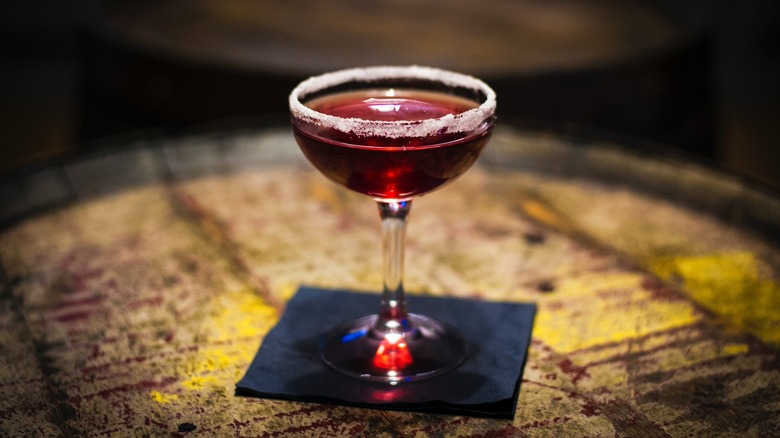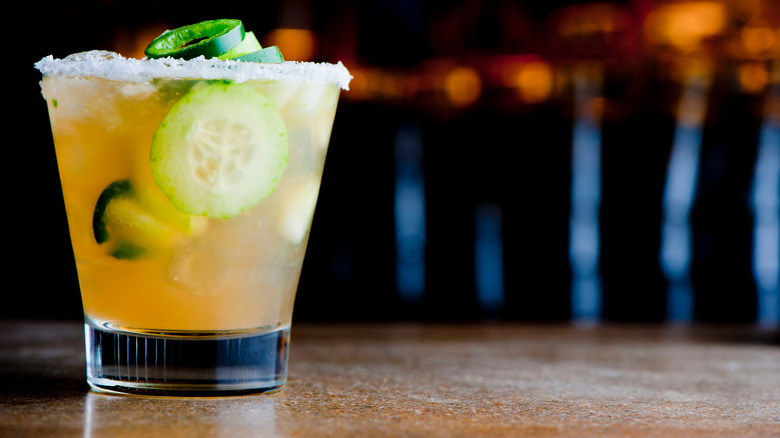The Safest Way To Experiment With Adding Salt To Cocktails
Bartenders at the Little Red Door in Paris add salt solution to drinks, barely discernible drops that turn up the volume of the drink ingredients, notes Punch. "Salt makes the back palate water and causes you to experience flavor more intensely," said Will Wyatt, owner of New York bar Mister Paradise, to Saveur. "I love how it can take any flavor and change how you perceive it."
A physiological response kicks in when salt is added, notes Punch, as salt plays with the sour, sweet, bitter, and umami elements of any recipe, bringing different tastes to the forefront. Depending on what else has been put into the shaker — citrus notes, egg whites, even sparkling wine — salt can brighten or subdue elements and add texture to drinks.
"Some drinks should be left for the ingredients to speak for themselves, while others might need that little boost from saline to help showcase certain flavors," Jamie Dodge, beverage partner at Cul+ure Collective Hospitality Group, told Liquor. But there's a fine line between salted to taste and an alkaline disaster.
Proceed with caution
Since salt can enhance the sweet and sour flavors of many cocktails, bartenders around the world are incorporating the element into drinks (per Punch). Sure, glasses can be rimmed with salt and drinks can be finished with a fine sprinkling, but liquid applications have more use; saline solutions are often the go-to behind the bar, observes Wine Enthusiast. Diluted salt-water concoctions allow bartenders to ensure consistency of flavor when building recipes, notes Saveur.
To make a saline solution you can add to cocktails at home, Cocktail Chemistry recommends adding 20 grams of salt to 80 milliliters of water and shaking it in a jar until the liquid turns clear. Then, place the solution in a dropper to control the amount you add to drinks. Start slowly, one drop at a time, and conduct taste comparison experiments along the way.
Measure your saline solution carefully, however, as messing up the percentage and ratio of salt to water is a common mistake, warns Liquor. "It's all about R&D," Dodge told Liquor. "Also, start with a little saline solution, and you can always add more."

